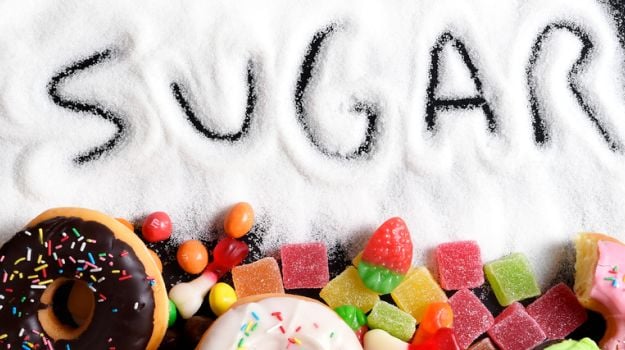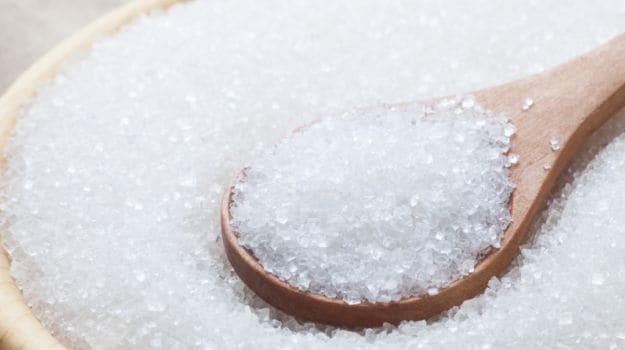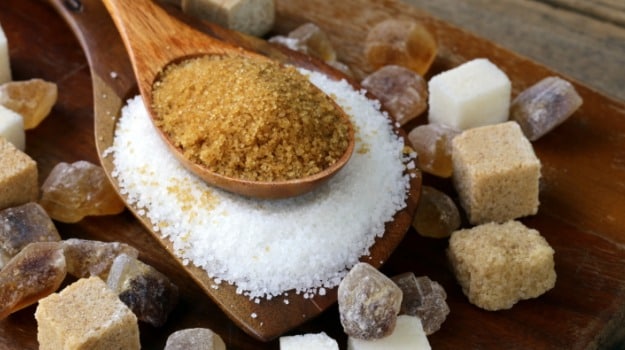Is Sugar Really Addictive?

Undeniably, sugar has been one of the hot topics for experts and fitness enthusiasts to talk about, and why not? It is one of the most loved ingredients across the globe, almost ubiquitous in food products that surround us. Sugar is one of the easiest and most convenient ways to satiate the need to satisfy one of our basic tastes – sweet. Refined sugar has been browbeaten much owing to its adverse health effects. Simon De Burgh set out on a quest to understand sugar better when most of his clients kept prodding him with questions associated with sugar.”I have to be honest, sugar is addictive. Just look at the mass population and everyone seems to be hooked on sugar, either consciously or subconsciously. If you think about it, most of our processed, pre-packaged foods and drinks, including the ones which claim to be healthy for us, have sugar added to them to make them taste great! I can almost guarantee that if you take the sugar out of the products you like so much, you wouldn’t eat or drink them as often as you do,” he noted.

Most celebrity interviews signal at an obvious thing – the mammoth inability to give up or curb sugar intake. The so-called addiction is lethal, many try to cut it down, only a few succeed. To understand the nature of sugar better and how it affects our diet and health, let us first understand what an addiction really is. Is it just a habit gone viral in your daily routine?
What is Addiction?
Broadly speaking, addiction is defined as the continued use of a mood altering, addictive substance or behaviour despite knowing about its adverse consequences. Some defining characteristics of addiction include:
– An inability to exercise control over the substance/behaviour
– Preoccupation with the substance/behaviour
– Continued use and denial to control.
Sugar High
In a study conducted by Dr S. Ahmed in France, rats were monitored on their behaviour and reaction vis-a-vis cocaine and sugar. The sweet taste of sugar was more rewarding than the high of cocaine! The rats showed all the symptoms of addiction.

Sugar and carbohydrate affect our body. When blood sugar levels are elevated it is detected by the pancreas and insulin is released to balance the system. Insulin helps in processing glucose into the cells and use it as energy later on. It also stimulates the storage of excess blood glucose as fat. A diet high in sugar and carbs can lead to elevated blood glucose levels. Your cells stop reacting to insulin and hike glucose levels further. It is therefore quite plain and simple, the more sugar you feed your body, the more insulin it will produce triggering weight gain.
Sugar has psychological effects too. It plays with serotonin and dopamine and makes us ‘feel good’ and happy. As the pleasure point gets activated in the brain, the body starts releasing chemicals known as opoids which induce further craving for sugary items. Some of the most recent studies suggest drugs like morphine and heroin to have similar stimulating effects on brain as sugar.
Hidden Sugar
It is unbelievable to learn about the myriad ways in which sugar hides in our daily food items, from sauces, beverages to breakfast cereals, low-fat yogurt and much more. Surprisingly, bread also contains unhealthy amounts of sugar. Some of the alternative names for sugar that you must lookout for in food labels would include, sucrose, dextrose, high-fructose corn syrup and fructose.

Are You Addicted As Well?
Withdrawal symptoms are not alien to those who have consciously tried cutting down processed food items and sugar from their diet. The symptoms can range from a nagging headache to spells of mood swings and even messy sleep pattern. These are nothing but signs of withdrawal from an addiction. The ride gets bumpy, challenging and grueling but the key is not to give up. Be determined to fight your cravings, resist the temptation and substitute processed sugar with its many natural alternatives. Once you have mastered the trick, you will soon find yourself treading on a path leading to better health. Some of the benefits can include loss in weight, balanced glucose levels, better self-esteem, increase in energy, lesser tooth cavities, improved palate and decreased yeast infections.
